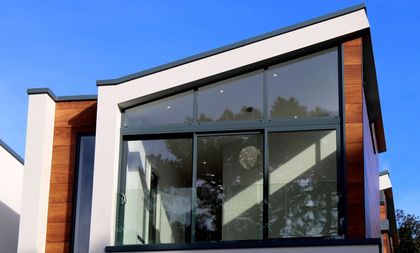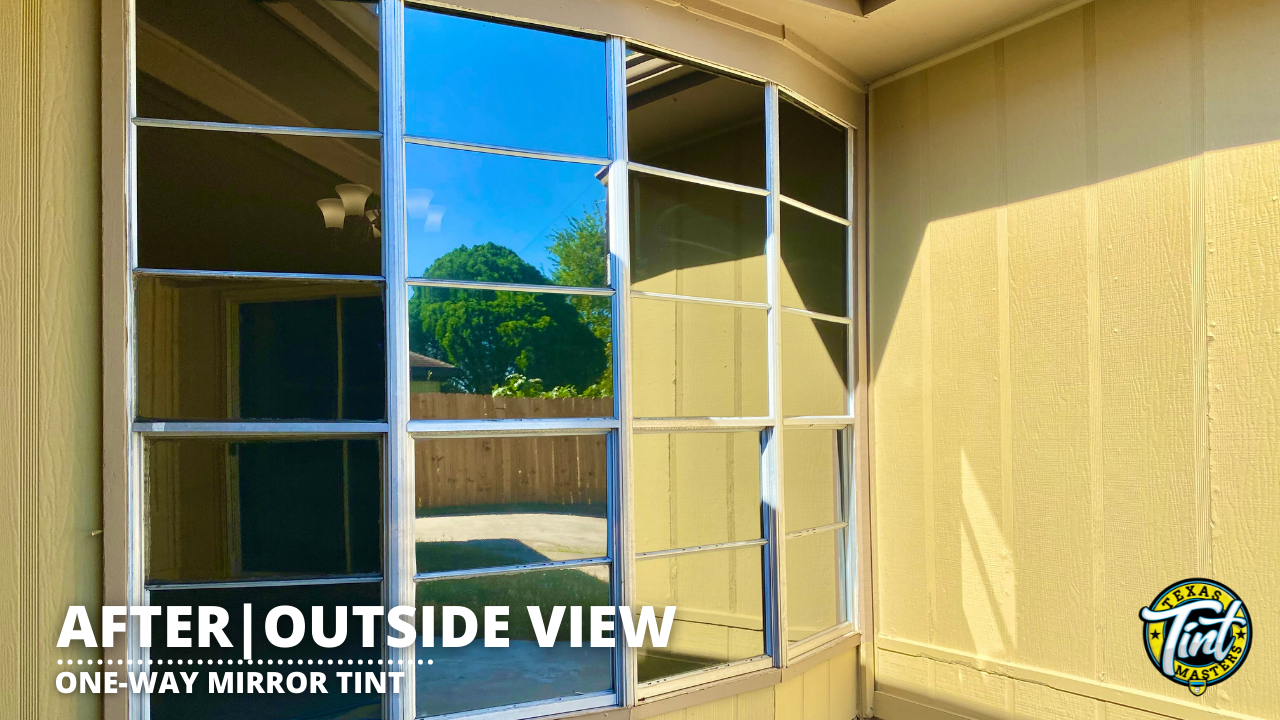Residential Window Tint: An Overview to Choosing the Right Shade
Residential Window Tint: An Overview to Choosing the Right Shade
Blog Article
How Residential Window Tinting Improves Your Home's Energy Efficiency
Residential window tinting provides an engaging remedy for house owners looking for to enhance energy performance within their living rooms. By applying specialized films to windows, it successfully reduces warm transfer, consequently maintaining interior temperature levels and minimizing the requirement for too much home heating or air conditioning.
Understanding Window Tinting
Understanding window tinting is crucial for house owners seeking to enhance both comfort and energy efficiency in their living spaces. Residential Window Tint. Window tinting includes the application of a thin film to the interior or exterior surface area of glass home windows. This film can considerably modulate the amount of sunlight and heat that enters a home, thus influencing interior environment problems
There are numerous kinds of home window tinting films offered, each with unique homes. Colored movies take in solar energy, while reflective films deflect it away from the glass surface. Ceramic movies use an equilibrium of exposure and heat rejection, making them a popular selection amongst house owners. The efficiency of window tinting is often determined by its Visible Light Transmission (VLT) percentage, which shows just how much light can pass with the film.
Benefits of Power Performance
Home window tinting not only boosts visual appeals yet likewise plays a considerable role in improving power performance within property spaces. By reducing warm transfer with windows, colored movies create an extra secure interior climate, which can result in considerable decreases in power usage for heating & cooling. This power efficiency converts into reduced utility expenses, offering property owners with substantial lasting savings.

Additionally, home window tinting improves the comfort of living rooms. By decreasing glare and blocking hazardous UV rays, colored windows create an even more pleasurable environment, which can bring about enhanced well-being for occupants. The defense versus UV rays also aids protect furniture and floor covering from fading, adding to the longevity of house products.
How Tinting Functions
Tinting films run through a mix of sophisticated products and modern technologies created to control the quantity of solar power entering a home. Mostly composed of polyester, these movies often include ceramic or metal bits that show and soak up heat. This double ability enables them to dramatically lower the infiltration of ultraviolet (UV) rays and infrared radiation while permitting noticeable light to travel through.
The effectiveness of home window tinting is measured by its solar heat gain coefficient (SHGC), which indicates just how much solar power is transmitted with the home window. Reduced SHGC values are better as they denote better warmth rejection. Additionally, window tints can feature a variety of tones, allowing property owners to personalize their visual preferences while enhancing energy efficiency.
In addition, these films work as an obstacle, preventing heat loss throughout cooler months by mirroring interior heat back into the home. This thermal insulation result enhances the air conditioning benefits acquired throughout warmer months, adding to a well balanced interior climate year-round. By handling solar energy properly, household home window tinting not just enhances convenience but also i loved this plays an important role in decreasing power intake and lowering utility expenses.
Selecting the Right Color

There are different kinds of home window movies available, consisting of colored, metalized, and ceramic. Ceramic films provide exceptional warm control without compromising presence and are extremely durable, making them a preferred option.
Noticeable light transmission (VLT) is an additional essential aspect, as it shows the quantity of natural light that can travel through the tinted glass. House owners need to choose a tint with a VLT that complements their illumination preferences while still offering ample glow decrease.
Additionally, examining the solar heat gain coefficient (SHGC) can aid establish just how well a color can block warmth from sunshine. A reduced SHGC shows far better warm control, ultimately enhancing energy efficiency.
Setup and Maintenance Tips
Proper installment and upkeep are crucial elements in optimizing the benefits of residential home window tinting. To accomplish optimal outcomes, it is advisable to work with a certified professional for installment. This makes sure that the tint is used properly, avoiding air bubbles, creases, or imbalance that could endanger performance. Professionals likewise use specialized devices and methods, which can enhance the resilience and performance of the color.
Complying with installment, maintenance is vital to lengthen the life of the home window movie. It is recommended to wait at least 30 days before cleaning up the colored home windows to permit the glue to heal fully.
Addressing these issues promptly can protect against more damages and keep power effectiveness. By adhering to these installment and upkeep tips, homeowners can ensure their window tinting continues to supply substantial energy cost savings and convenience for years to come.
Verdict
In verdict, residential home window tinting offers as a reliable solution for enhancing energy efficiency within homes. By reducing heat transfer and blocking hazardous UV rays, home window movies contribute to decrease energy consumption and improved indoor convenience. The selection of suitable tinting materials, along with correct installment and upkeep, even more makes the most of these advantages. Inevitably, window tinting stands for a sustainable financial investment that not only lowers energy costs yet likewise promotes a comfortable living environment throughout the year.
Window tinting includes the application of a slim film to the inside or outside surface of glass windows. By minimizing visit this site right here warmth transfer through windows, tinted movies develop a more stable indoor environment, which can lead to substantial decreases in energy consumption for heating and air conditioning.The performance of window tinting is determined by its solar warm gain coefficient (SHGC), which indicates just how much solar energy is transmitted with the window. By handling solar power properly, domestic home window tinting not only improves comfort however likewise plays a crucial duty in lowering power intake and decreasing energy costs.
By reducing heat transfer and blocking damaging UV rays, window films contribute to lower energy consumption and improved browse around this site interior convenience.
Report this page